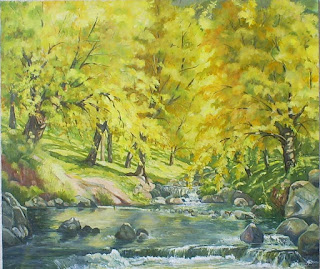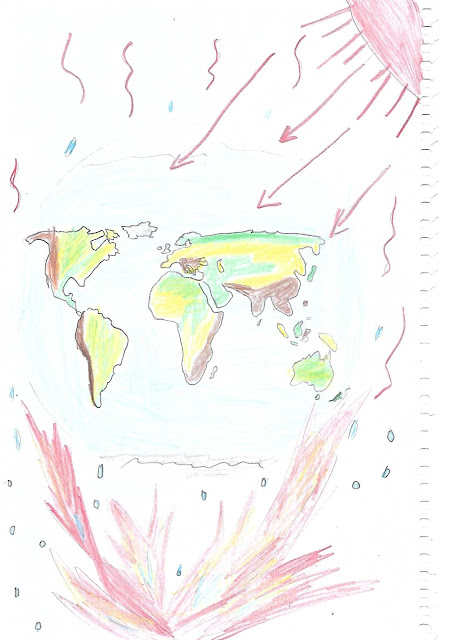José Sobral de Almada-Negreiros (1893-1970)
José Sobral de Almada Negreiros (São Tomé e Príncipe, April 7, 1893 - Lisbon, June 15, 1970) was a Portuguese artist. In 1915, along with Fernando Pessoa and Mário de Sá-Carneiro, publishes poems and texts in the Orpheu artistic magazine, which would introduce modernist literature and art in Portugal. This same year Almada Negreiros writes the famous Manifesto Anti-Dantas e por extenso, a humorous attack against a more traditionalist and bourgeois older generation. In 1917, with the scope of introducing to the Portuguese public the Futuristic aesthetics, publishes, together with Santa-Rita Pintor, the Portugal Futurista magazine, writing the Ultimatum Futurista, às gerações portuguezas do século XX ("Futurist ultimatum to the Portuguese generations of the 20th century"). Between the years 1918-20 Almada lives in Paris. In 1920 he returns to Lisbon and in 1925 he produces two paintings for one of the most famous cafés in Lisbon, A Brasileira. In 1927 he goes to Madrid, returning to Portugal only in 1932. In 1933 he married painter Sarah Afonso (1899 – 1983) and they have a son, named José Afonso de Almada Negreiros. Almada Negreiros always called himself a futurist artist, inspired by Marinetti and other modern artists, however his style is wider, and its hardly defined into a category. His work as visual artist extends to tapestry, printmaking, theater and ballet scenography. An important part of his artistic production is literary. He wrote novels, poems, playwrights, essays and manifests that were, in his lifetime, published in books, magazines, newspapers or even low cost booklets and flyers.






















































